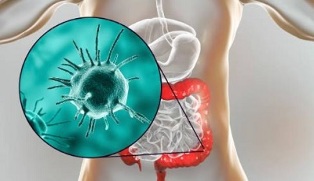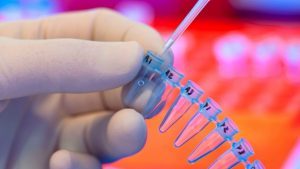
Parasitic diseases are a large group of diseases caused by helminths, some arthropods and protozoa.
Despite all the achievements of modern medicine and advanced hygiene, according to statistics, about 90% of people in the world suffer from these pathologies at least once in their lives. In this article you can learn how to suspect a disease and what tests to take for parasites.Types of parasites
Parasites are organisms that survive due to the vital activity of living things. They cause a deficiency of trace elements, vitamins, proteins and other nutrients in the human body during their settlement, growth and reproduction. Both can lead to recurrence and exacerbation of chronic pathologies and damage to internal organs by themselves.
There are the following types of parasites that can cause disease in humans:
- protozoa (amoeba, lamblia);
- pathogenic microorganisms (chlamydia, mycoplasma and others);
- helminths (roundworms, pinworms, bovine and pork tapeworm, etc. );
- parasitic arthropods (itch tick, demodex).
The main feature of the pathologies they cause is a long-term asymptomatic or low-symptomatic course. Parasites skillfully hide their existence by trying to "squeeze everything out of the host's body" until they run out of resources and cause serious damage to an organ or tissue.
Symptoms of parasitic diseases
Parasitic pathologies are diseases caused by the presence of worms in the body - helminthiasis. It is most common in children, but can develop in adults if hygiene rules are not followed. It does not manifest itself for a long time after infection or is often accompanied by mild symptoms that go unchecked.

Each disease is characterized by certain features, but there are also common symptoms:
- Increased headache, dizziness, weakness and fatigue. These manifestations are the result of intoxication caused by non-poisoning by parasite waste.
- Exacerbation of bronchial asthma and allergic rhinitis, dermatitis, urticaria. They are caused by high sensitivity to helminth cells and their excretion products.
- Disorders of the digestive system (abdominal pain, nausea, vomiting, heartburn, constipation and diarrhea). Parasitic helminths in the intestinal lumen cause inflammation due to obstruction of the intestinal lumen, causing intestinal obstruction.
- Anemia, vitamin deficiency, weight loss. Deficiency of protein, vitamins and minerals occurs due to a decrease in hormone production.
- Sleep disorders, chronic fatigue, irritability, nervousness, muscle and joint pain.
Many helminth types require a fecal analysis or a blood donation for specific antibodies. You can do the research at the clinic in your place of residence, after admission to the hospital, or in one of the private laboratories. Some medical centers offer an extended examination during which it is possible to diagnose the presence of several types of parasites in the body.
Parasite tests

What tests should be performed when a parasitic disease is suspected will be explained by the attending physician based on complaints, medical history and clinical manifestations of the disease.
Diagnosis begins with a complete blood count. The most typical changes in helminthiasis:
- Decreased hemoglobin levels and decreased red blood cell count (caused by protein and iron deficiency).
- Increased leukocyte count, accelerated ESR (these are signs of inflammation of the internal organs, especially the gastrointestinal tract).
- Increased eosinophils (a characteristic allergy symptom that occurs in response to the irritating effects of helminth waste).
Fecal analysis for helminth eggs and crumbs is used for a more accurate diagnosis. Examination of feces can reveal the causative agents of enterobiasis, ascariasis, hymenolipedosis, as well as the presence of protozoan microorganisms (lamblia).
It is important to remember that a single study has a 30% chance of detecting a worm egg in the stool. Therefore, to clarify the diagnosis with the first negative result, the study is conducted twice more in 2-4 days.
To increase the accuracy of the study, it is important to carefully prepare the stool for analysis. Collect biological material in a special sterile container that can only be obtained at a pharmacy. A few days before the analysis, you should stop eating coloring products (beets, red berries, exotic fruits, sweets and colored drinks), do not use laxatives and rectal suppositories.
Immunoassay
In adults and children, ELISA analysis can detect antibodies produced by the human body in response to the presence of foreign bodies. To do this, blood is taken from a vein, and in the laboratory it is possible to detect specific IgG antibodies for lamblia, trichomonads, swine and bovine tapeworm, trichinella, echinococcus, toxocara, roundworm and pinworms. With the help of this research, you can detect the presence of almost all parasites in the human body.
It is not difficult to prepare for research. The test should be performed in the morning, after fasting for 8-10 hours on an empty stomach. It is recommended not to take antibacterials and antihistamines before the study, and not to eat food allergens (honey, seafood, exotic fruits and red berries, nuts). Immediately before donating blood, experts recommend relaxing in the laboratory's waiting room for 10-15 minutes.
The results of the study will be known in 1-2 days. This work is carried out both as a preliminary diagnosis and as a control over treatment.
Timely detection of parasitic diseases and modern effective treatment help to prevent dangerous complications.




























